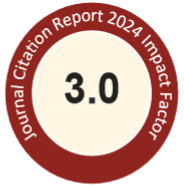Abstract
Of the various derivatives of caffeic acid, caffeic acid phenethyl ester (CAPE) is a hydrophobic, bioactive polyphenolic ester obtained from propolis extract. The objective in writing this review article was to summarize all published studies on therapeutics of CAPE in inflammation and cancer to extract direction for future research. The possible molecular targets for the action of CAPE, include various transcription factors such as nuclear factor-κB, tissue necrosis factor-α, interleukin-6, cyclooxygenase-2, Nrf2, inducible nitric oxide synthase, nuclear factor of activated T cells, hypoxia-inducible factor-1α, and signal transducers and activators of transcription. Based on the valuable data on its therapeutics in inflammation and cancer, clinical studies of CAPE should also be conducted to explore its toxicities, if any. © 2014, Food and Drug Administration, Taiwan. Published by Elsevier Taiwan LLC. All rights reserved.
ScienceDirect Link
Recommended Citation
Murtaza, G.; Sajjad, A.; Mehmood, Z.; Shah, S.H.; and Siddiqi, A.R.
(2015)
"Possible molecular targets for therapeutic applications of caffeic acid phenethyl ester in inflammation and cancer,"
Journal of Food and Drug Analysis: Vol. 23
:
Iss.
1
, Article 18.
Available at: https://doi.org/10.1016/j.jfda.2014.06.001
Creative Commons License

This work is licensed under a Creative Commons Attribution-Noncommercial-No Derivative Works 4.0 License.
Fulltext URL
https://www.sciencedirect.com/science/article/pii/S1021949814000817/pdfft?md5=58a608ceaea30216a1d32f3372a8b704&pid=1-s2.0-S1021949814000817-main.pdf
Included in
Food Science Commons, Medicinal Chemistry and Pharmaceutics Commons, Pharmacology Commons, Toxicology Commons

